After 5 wonderful days in Kuala Lumpur, we boarded an internal flight to the island of Langkawi, in the north of Malaysia and on the border with Thailand. Langkawi is known for its sandy beaches and islands, but it’s also home to a diverse landscape to explore. I knew I didn’t want to spend every day lounging on a beach so I booked us on to a boat trip to explore some of Langkawi’s super special coastline, home to huge quantities of mangroves, an ideal ecosystem and habitat for a range of animals, birds and plants. Welcome to Kilim Geoforest Park, the first geopark in Southeast Asia!
- About Kilim Forest Geopark
- How to get to Kilim Forest Geopark
- What to expect from the Kilim Forest Geopark Mangrove Tour
- Other important Visitor Information
About Kilim Forest Geopark
Kilim Forest Geopark’s formation dates back c.490 – 370 million years! It’s a place with ancient geological heritage, and is home to many natural wonders such as huge areas of mangroves, multiple species of monkey, and the beautiful local eagles.
Sailing around the Geopark feels like stepping in to a magical world, full of steep cliffs, wildlife and beautiful waterways winding through interesting rock formations and views.
It’s no wonder that the park was made the first UNESCO Global Geopark in 2007, making it the first geopark in Malaysia and the South East Asia region. This endorsement was given due to its significant geoheritage features like landscapes, caves sea arches and sea stacks, dropstones, fossil and local community involvement.
Today the park is a thriving tourist attraction, with hundreds of visitors daily. That does mean it’s quite busy, but despite crowds at the beginning, once you’re out on a boat it’s not too busy at all.
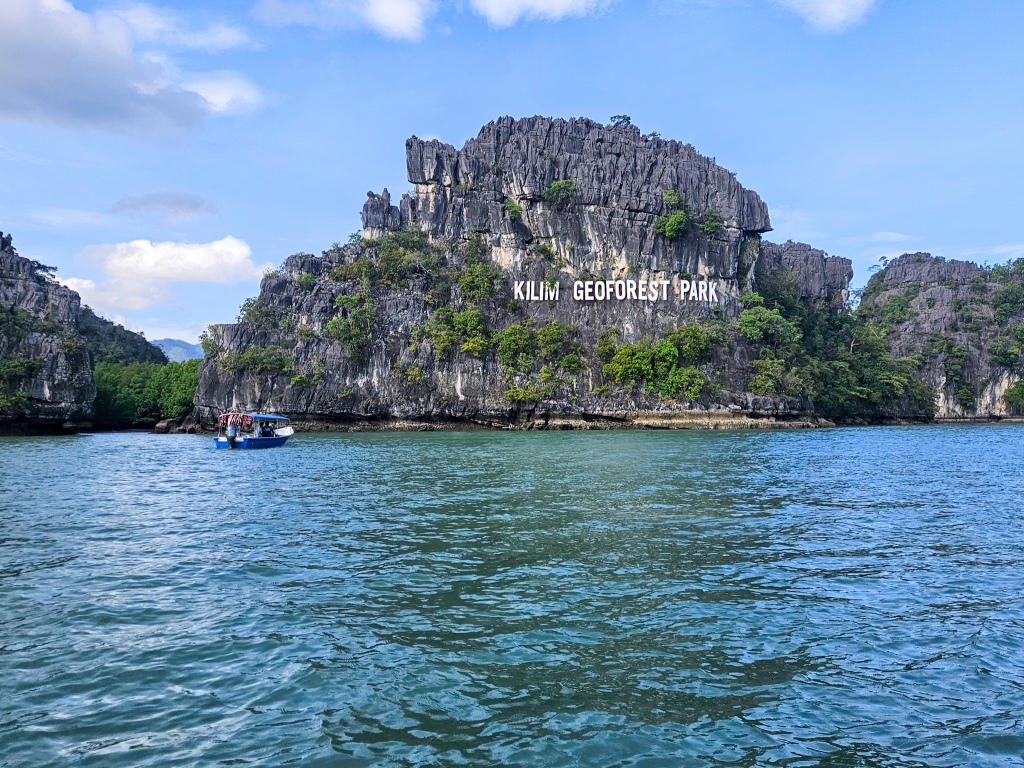
How to get to Kilim Forest Geopark
Kilim Forest Geopark is accessible only via boat, and boat tours leave from Tanjung Rhu pier.
Tanjung Rhu is located right on the northern tip of the island, and if you’re arriving from other parts of the island, I recommend leaving 45 minutes to get there as traffic can be busy on the island. The easiest way to get there is to take a Grab taxi, which will cost c£5-£10 depending on where you are coming from on the island.
Alternatively you could book a tour which includes hotel pickup, though this will come at a premium. Tours of the Geopark can be booked as part of a group tour, or by booking an individual boat. The group option should cost around £20-30 per person, and the private option will cost around £50-75 to hire a private eight seater boat. You can book directly online (via Klook), or you can turn up to the pier and head to the ticket counter to purchase the experience directly.
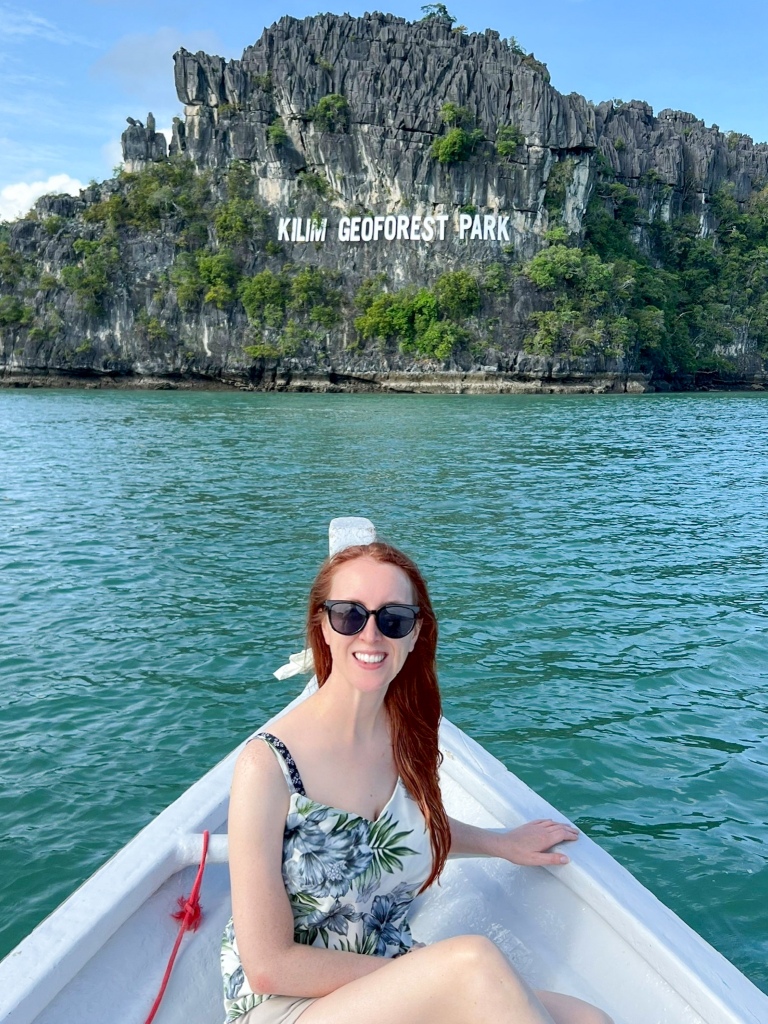

What to expect from the Kilim Forest Geopark Mangrove Tour
Mangroves
Without doubt the highlight of the boat trip is to sail among the mangroves and see these amazing plants in their natural habitat. They are special plants, and act as a barrier for Langkawi island – they even acted as a huge defence wall against the 2006 tsunami that hit the coast.
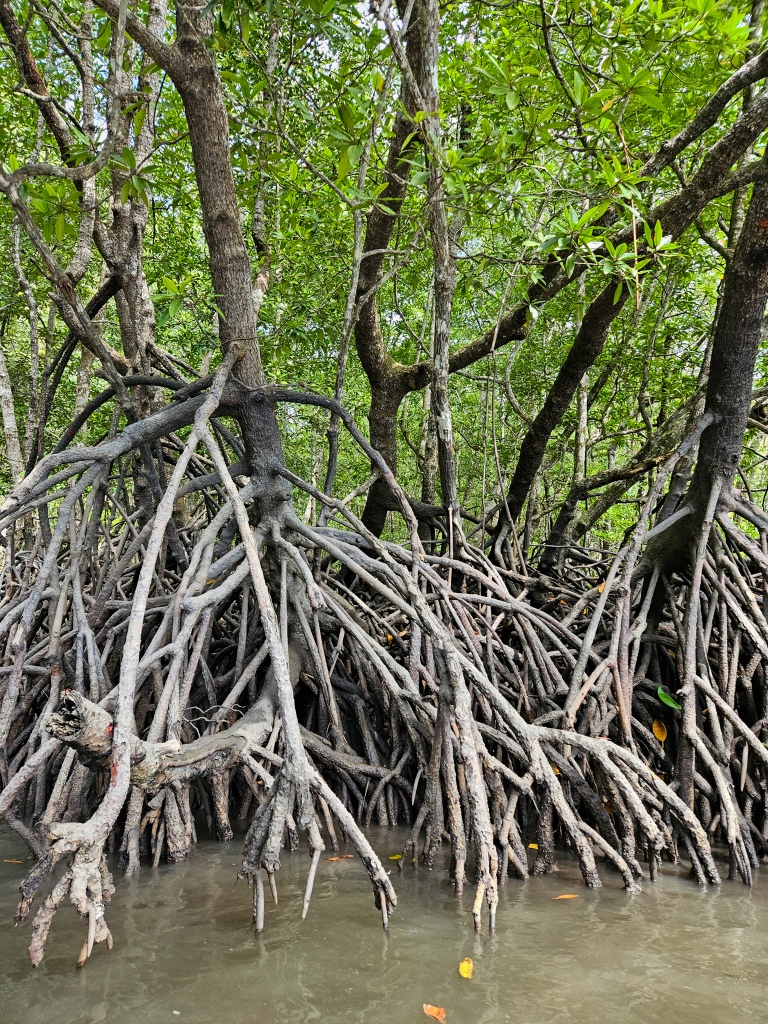
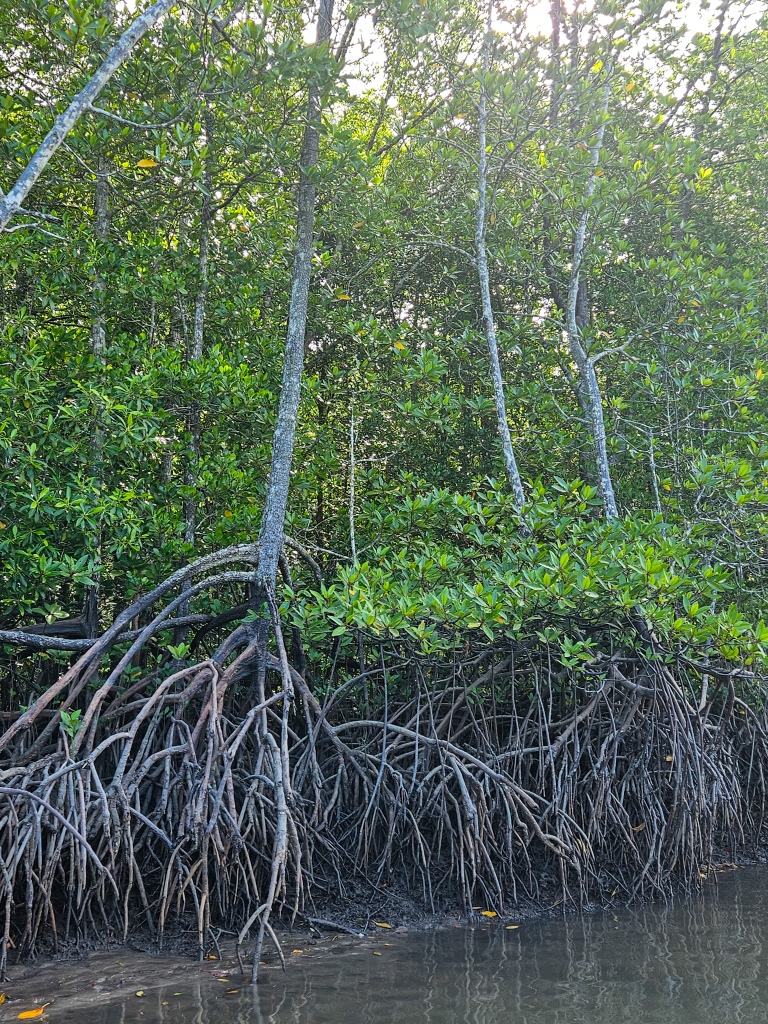
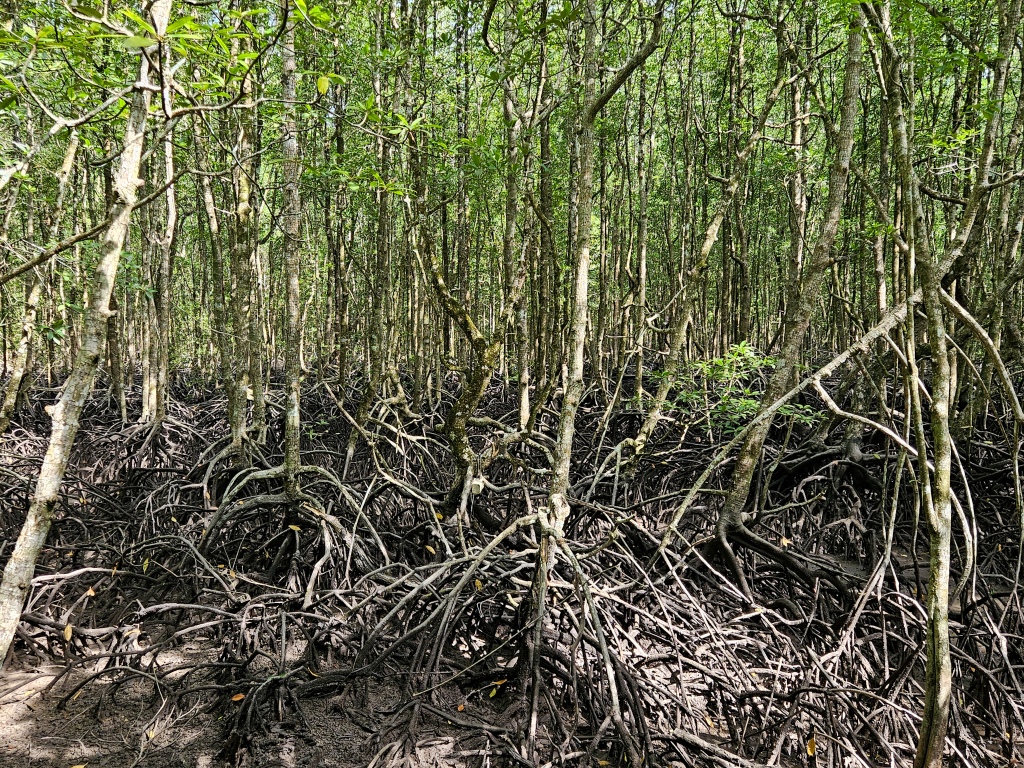
Eagle Watching
Langkawi is home to hundreds of beautiful eagles, sailing above the cliffs like something out of a movie. That said, some boat trips ‘feed’ the eagles by throwing chicken in to the water so that the tourists can see them up close – we chose not to do this, and instead just enjoyed seeing them fly overhead more naturally.
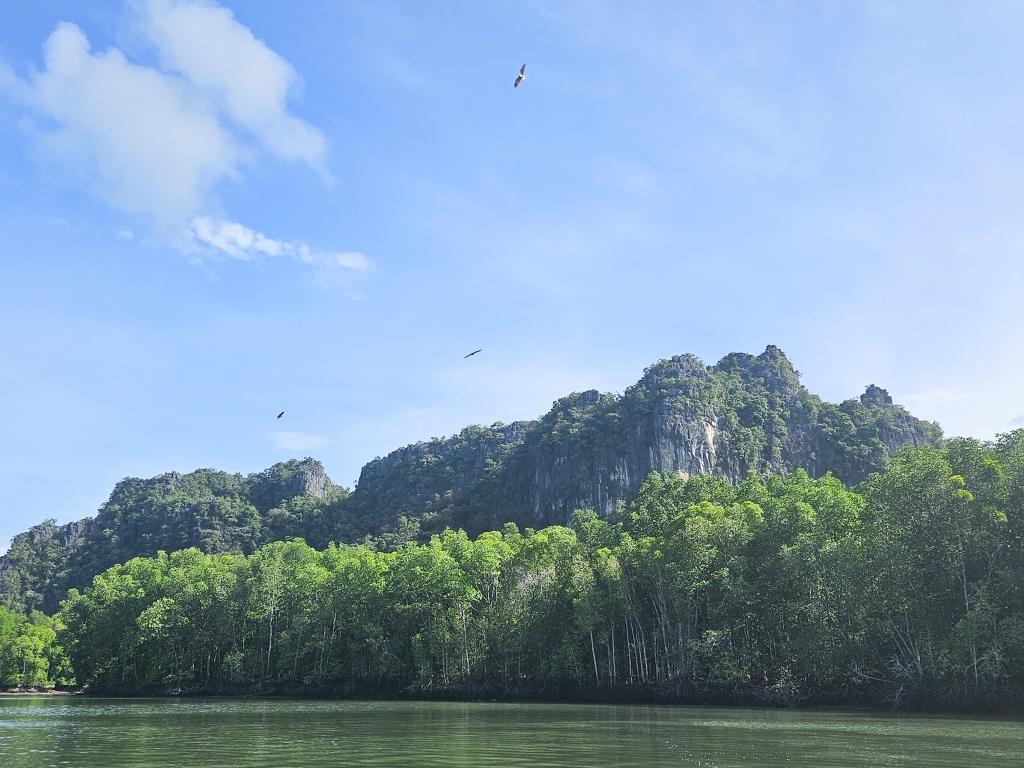
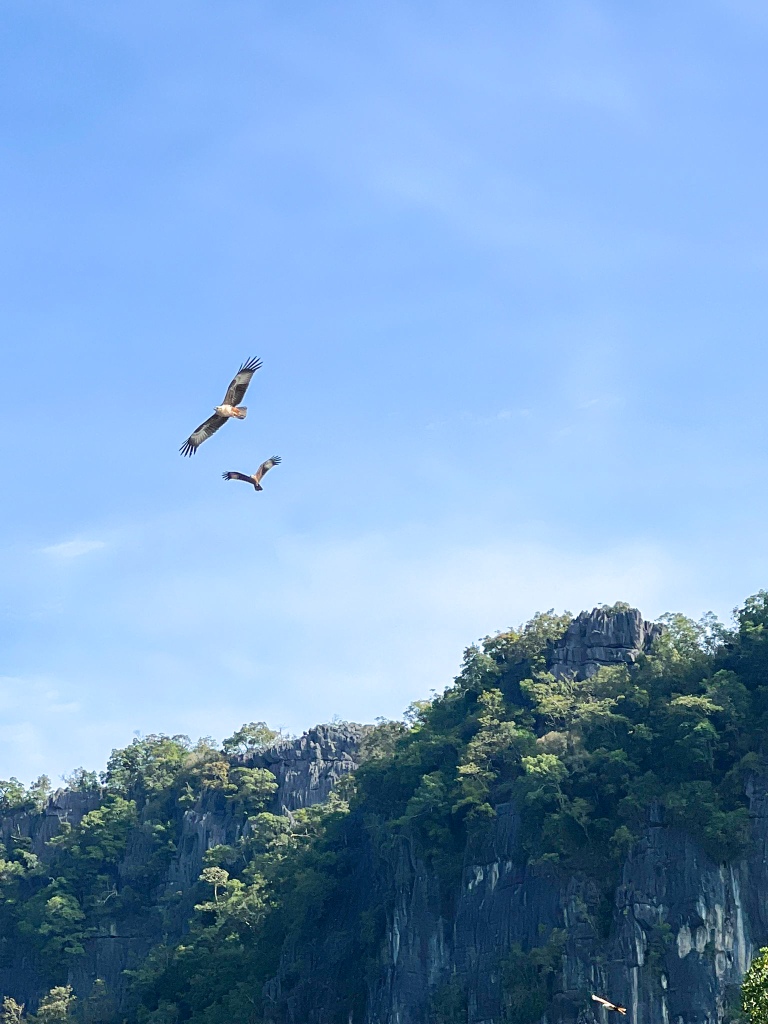

Bat Cave
The bat cave is an impressive place, unless you hate bats, in which case it would be a nightmare. The cave system is only accessible via the river and is home to hundreds of bats that cling to the roof of the cave as tourists stroll past – there’s a round loop walkway which can be completed at low tide, or you have to walk in to the cave and back out again the way you came at high tide.
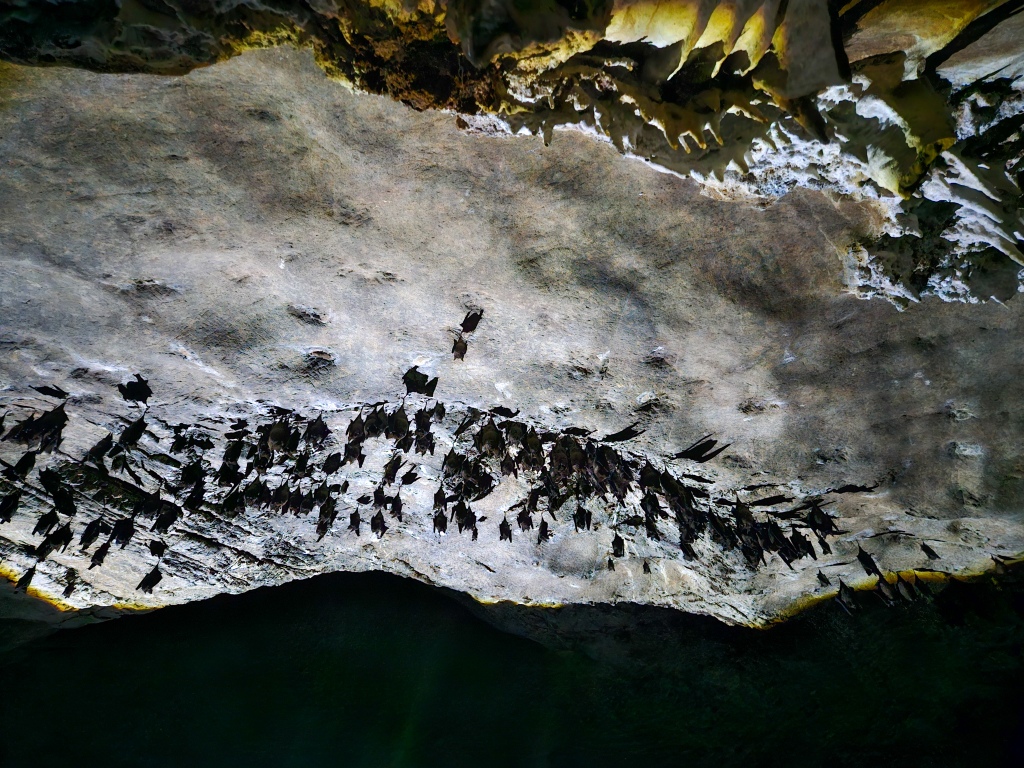
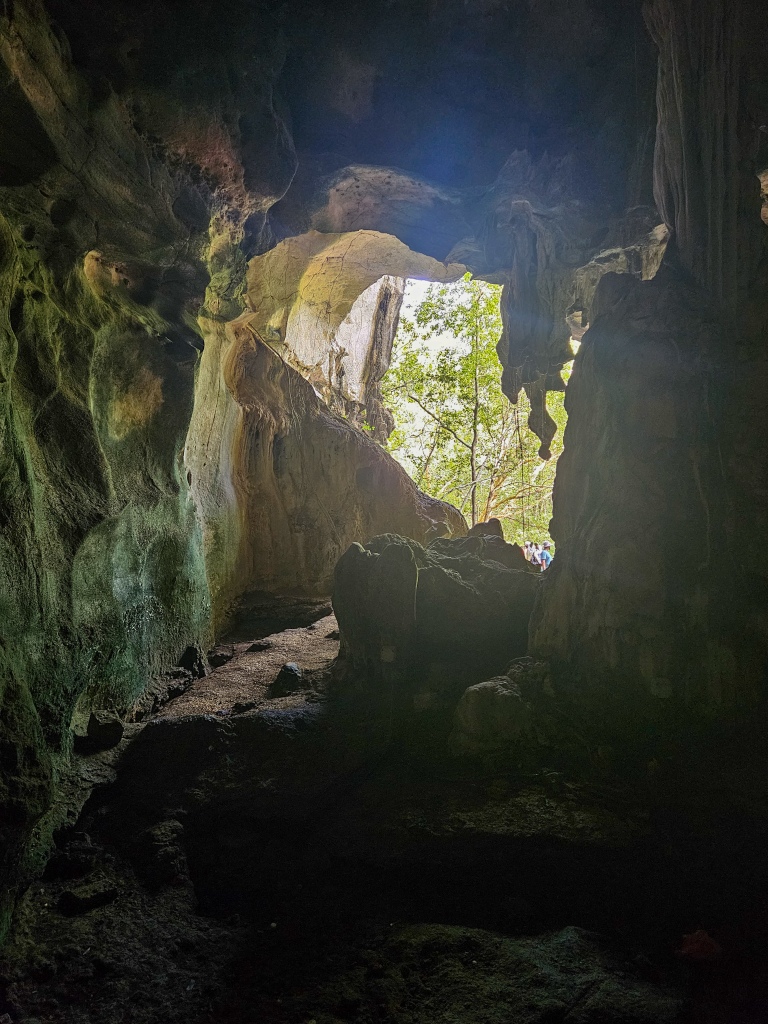
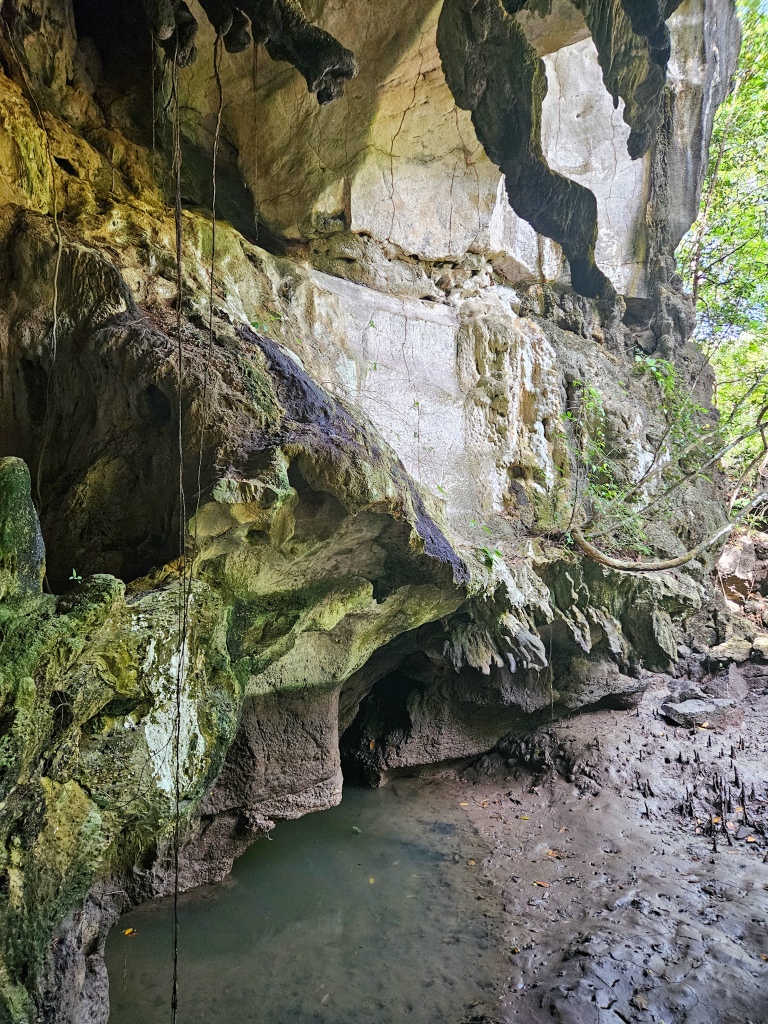
Fish Farm (& Restaurant)
This was really very touristy and I didn’t love this part of the tour. After climbing out of your boat, you’ll get a rushed run-through of the different fish and crustaceans kept in the small pens, before they try to usher you in to the restaurant for food and drink. It is a picturesque setting, but we didn’t choose to eat there and got straight back on our boat.
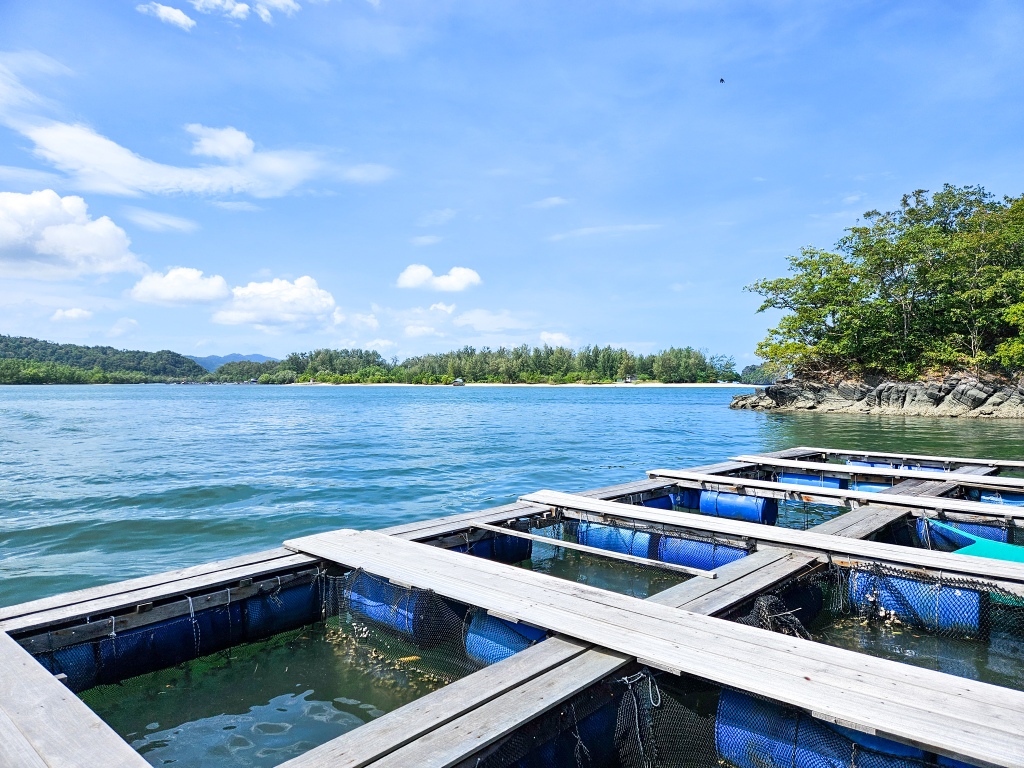
Macaque Monkeys
All along the river front, you’ll see a host of wildlife. We saw a brilliant blue kingfisher right near us but it was too quick for us to manage a photo, as well as some lizards, crabs and other wildlife. However one thing we did see hundreds of is Macaque monkeys, and they were everywhere, almost showing off to the boats as they sailed past!
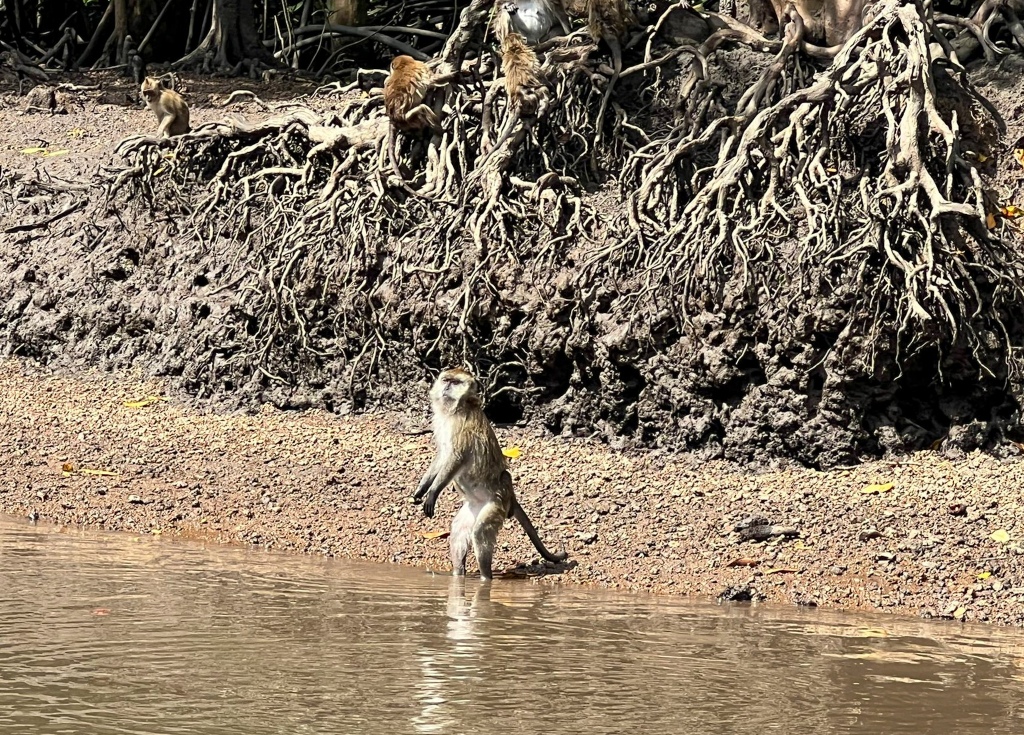
Andaman Sea
The tour finished for us on a high. I love it when a boat goes really fast through the open sea – wind in my hair, sun on my face, powering over the waves. We sailed out of the windy mangrove trails and in to the sea with a view out over to Thailand and absolutely hit the throttle. So much fun to end the tour!
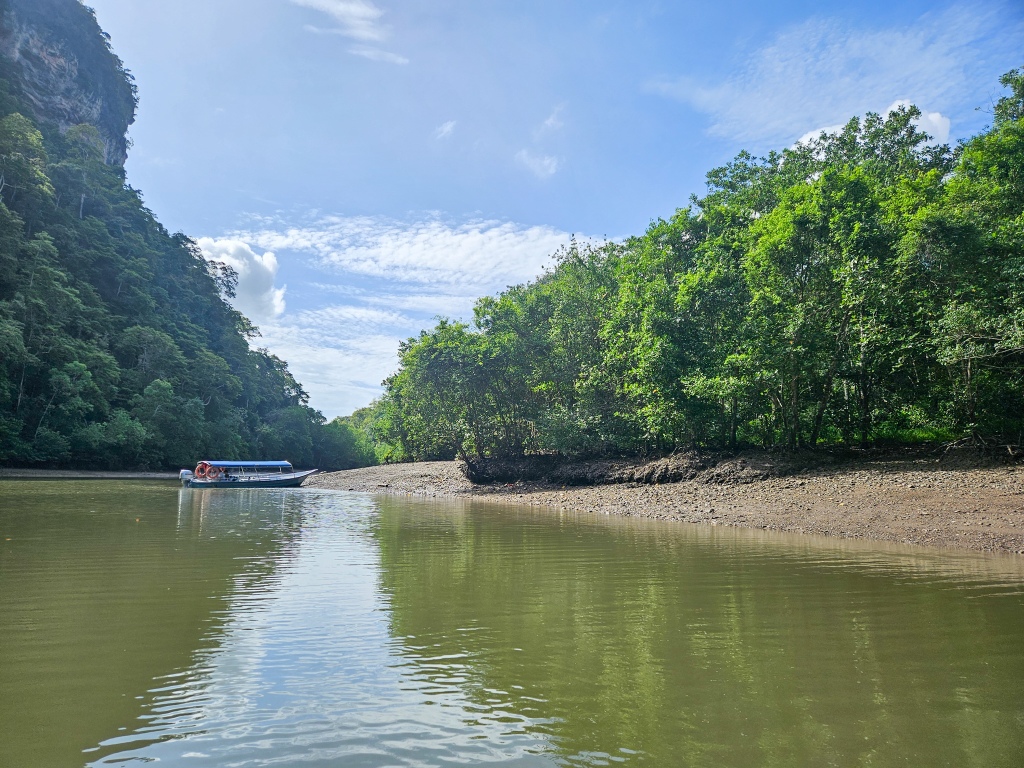
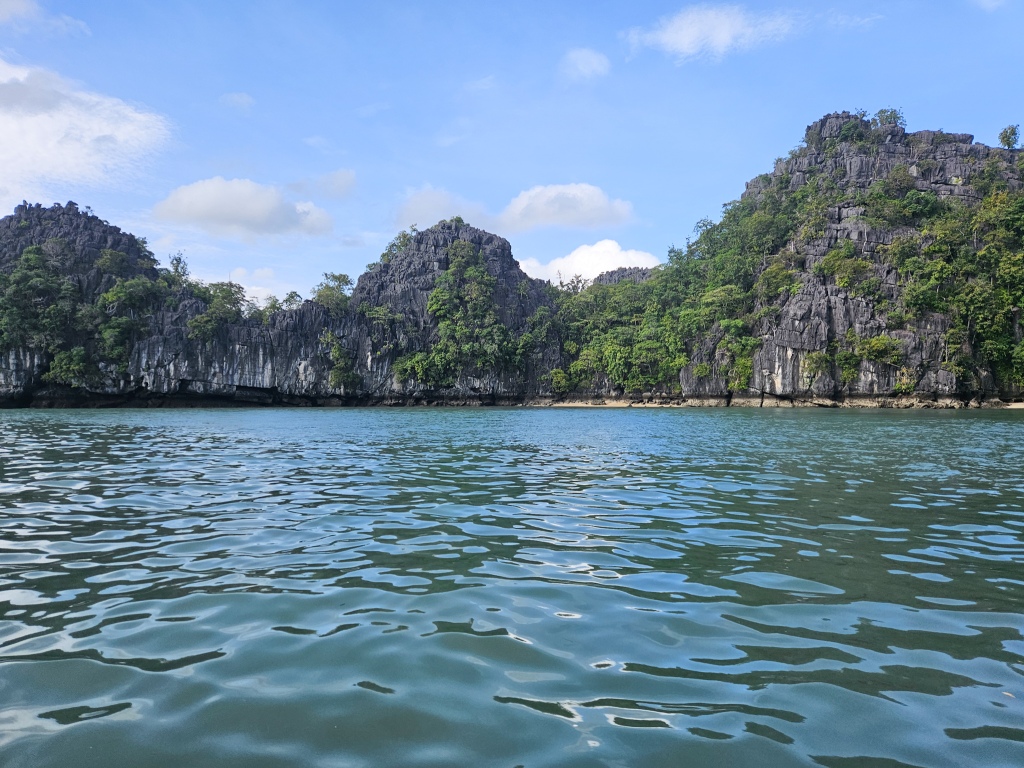
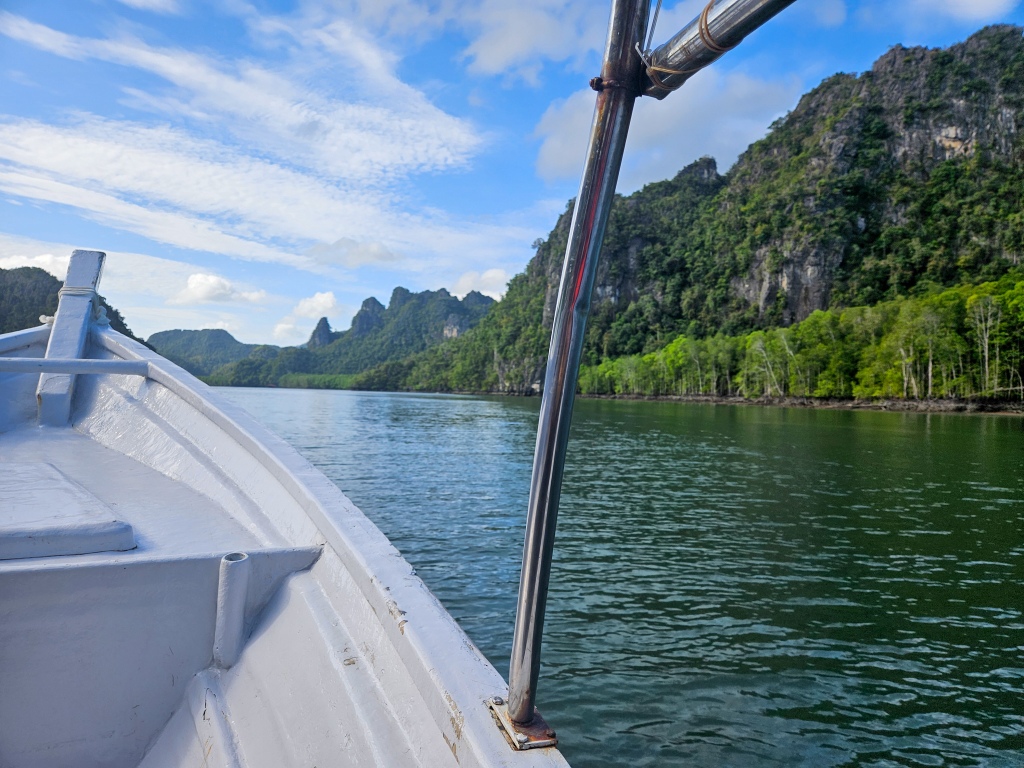
Other important Visitor Information
- A trip around the mangroves lasts roughly 2.5 – 3hours
- It’s best to go early morning before all the crowds descend and to avoid the heat of the day
- Take a hat, sun-cream and plenty of water
- You will have to climb on and off the boat, so wear sensible footwear
- You can also add on to your tour a stop at a private beach, or for snorkelling. We didn’t do either of these things on our trip.
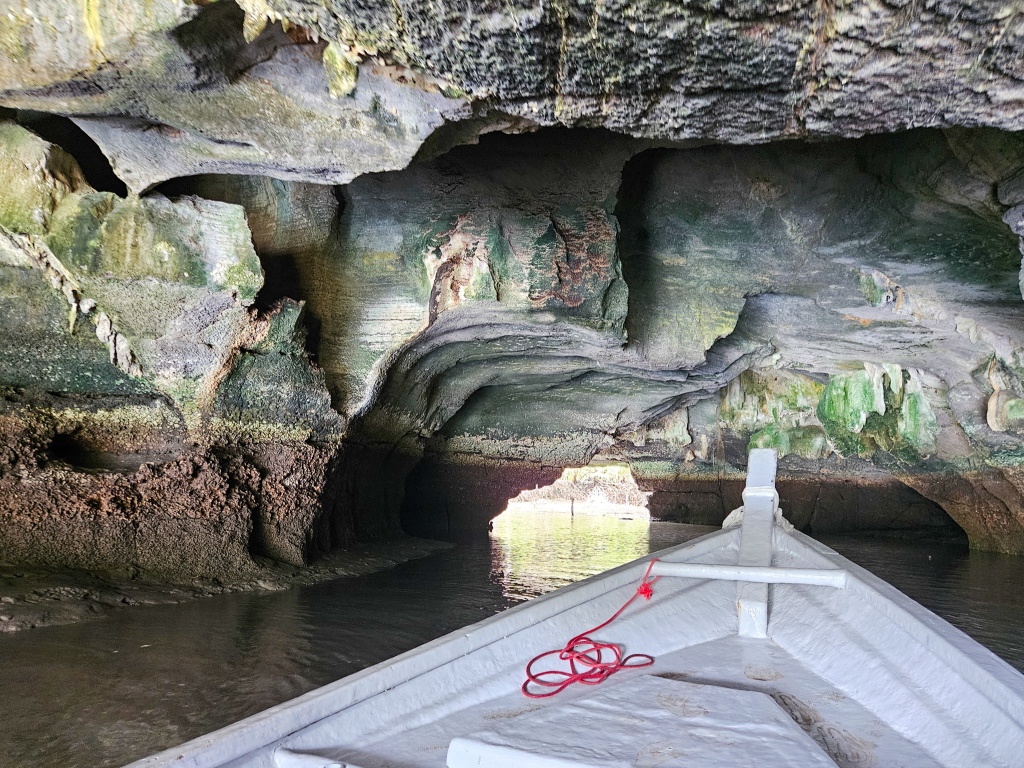
And that’s a wrap on Kilim Geoforest Park. We really enjoyed our half day boat trip and would highly recommend it as something a bit different if you’re in Langkawi. We found it to be interesting, and it added some variety in to our trip by getting out on the water. I hope you enjoyed the trip – let me know what you think in the comments. Stay safe and happy travelling!

Leave a comment